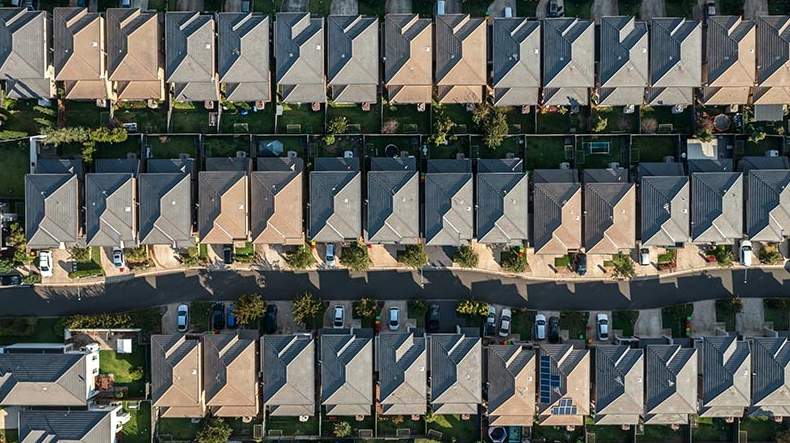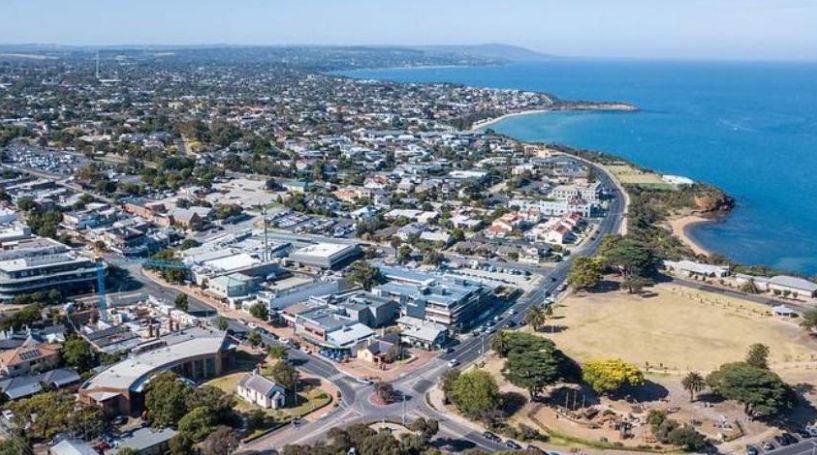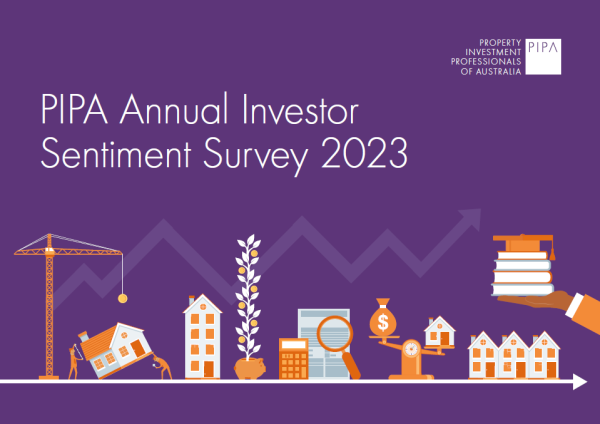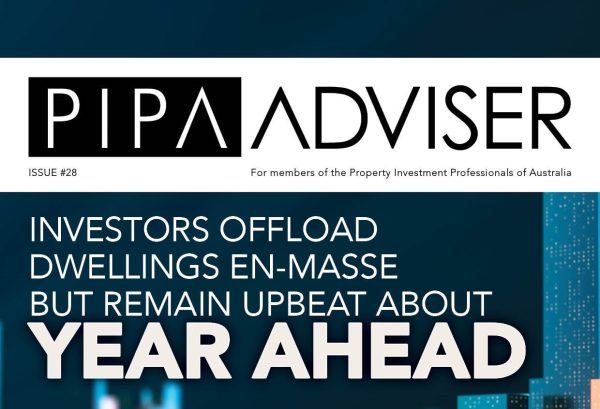Melbourne taxes loom as the biggest headache for Melbourne property
Mar 2024Karen Millers
Categories
Location ReportsMedia releasesNational market updatesPersonal advisersPIPA AdviserPIPA Annual Investor Sentiment SurveysPIPA Member ProfilesPIPA video updatesPIPA webinarsPodcastsProperty advisersProperty newsLatest Articles
Rent rises ease but crisis’ link to population density found to be tenuous
Jordan van den Berg: The ‘Robin Hood’ TikToker taking on Australian landlords
Victorian property investors face yet another new property tax as council tests levy
Rentvesting in Australia: A deep dive
‘More chance of winning lotto’ than housing targets being met
The Victorian capital is an economic hot spot and set to become the biggest city in Australia – so why is it the worst-performing residential market?
Three years ago, Australian property investors were not to know, but the worst of the pandemic was over, and the residential market was ready to rebound. Every city in Australia was poised to experience a powerful lift in prices except, that is, in Melbourne.
The puzzle is that Melbourne should have been a winner. It has a surging economy and a huge immigrant intake, but the property returns for the city are woeful.
In fact, over the past three years, Melbourne has taken the wooden spoon on the property ladder.
With a measly 11 per cent price lift since 2020 it has only done half as well as Sydney.
Moreover, it is tracking at just one third of the 33 per cent lift we have seen nationwide since February 2020, according to research group CoreLogic.
Investors have been fleeing the Melbourne market, and the issue now is whether the situation could deteriorate further.
Property Investment Professionals of Australia chair Nicola McDougall says the investment numbers in the state are “falling off a cliff”.
Put simply, Melbourne had an annual intake of new investors of 66,000 in 2016. However, by 2019 (the latest available numbers) the figure had halved to 29,600.
The black spot for investors is apartments; mum-and-dad investors who got a foothold in the market through apartments priced at entry level have had the worst of it.
Apartment prices over more than a decade in the city have struggled to keep pace with inflation.
So Melbourne was already lagging the rest of the nation when the state government introduced a range of new property taxes last year. This year those taxes will hit home and 300,000 investors will get their first-ever land tax bills this month.
Land tax bills hitting home
In the years before Covid-19 struck, Melbourne had been tracking well. As the city is expected to become the largest in the nation by 2031 it was having the price trajectory an investor might expect.
In the four years to 2020 it rose 19 per cent, an improvement eclipsed only by Hobart at 37 per cent.
It is no coincidence that Melbourne investors now pay the highest land tax in the national market. Stuart Wemyss of the ProSolution Private Client group estimates that on the basis of property worth $500,000, a Melbourne investor pays $1950 annually.
No other city comes close, in fact NSW, Queensland and South Australia do not impose an equivalent land tax at all.
The fear now is not that Melbourne had a bad run post Covid-19, but that the lean years have a long way to run. The property market is not the sharemarket. In the residential sector, investors respond slowly to changing circumstances due to the “big ticket” nature of property transactions.
In last year’s state budget, the Victorian government aimed squarely and unapologetically at property investors. It brought in an Airbnb tax, a development windfall tax and a vacant land lax. But the tax that did the damage was land tax – or to be precise a widening of land tax to cut in on property worth more than $50,000, as the previous threshold was $300,000.
Industry analysts estimate that if you own a Victorian investment property, then the new taxes equate to about 10 per cent of your annual income from that property.
‘This is just the beginning,” says Marshall White real estate group sales director John Bongiorno.
“When you look at investors in this state, the majority are small investors; they own one property, and they are struggling to make it work.”
As Bongiorno told The Australian this week: “The situation urgently calls for comprehensive solutions to prevent what many believe could be an explosion in rental costs.”
Rents to surge again
Ironically, for tenants, the fact that property prices are not keeping pace in the city while property owner costs are soaring means that rents are going to rise.
Even with the large lift in interest rates in recent years – rents in the nation’s second-biggest city are still relatively cheap – Melbourne median weekly rents at $574 are the second lowest in the country after Hobart (at $546)
As Stuart Wemyss at ProSolution Private Clients says: “Those numbers play out across the city so that investors who depend on the sales to make their money, not rents, find that rents are no longer adequate either.” (You can hear Wemyss discuss the issue in this week’s Money Puzzle podcast).
But the chief concern for everyone with a stake in the market is that the city got the wooden spoon before the new string of property taxes arrived.
The pall over the city market is now being referenced by property leaders who operate well beyond the confines of retail investors, but must still face the same headwinds.
Property tycoon Nigel Satterley, who runs the nation’s biggest house and land developer, points to land taxes for a sales slump in new home sales.
Other property leaders say Melbourne will emerge from this doldrums when interest rates are cut. Property development tycoon Tim Gurner, who has just announced a $800m apartment development in the city, says the market will be “as strong as we have ever seen it” and writes off the current malaise to “hesitancy” among buyers.
But the interest rate cuts which seemed imminent a few months ago are now under question.
In fact, no less an authority than CBA boss Matt Comyn had warned of “persistent inflation” back in February – a factor that will keep rates higher for longer.
This week, Challenger chief economist and former RBA manager Jonathan Kearns said the central bank might not cut rates until 2025.
With the pace of national economic growth at its lowest for decades, Kearns says “the greater policy risk at the moment is inflation remaining high”.
For Melbourne-based investors, it’s grim. The factors depressing the city market are still in place,
The big promise that rates would fall this year is now being openly questioned by leading figures.
What can be done? There are now calls for a summit which would put politics to one side and seek to put incentives back into the Victorian market to stop the exodus of investors to rival states – especially Queensland.
According to the Real Estate Institute of Victoria, 90 per cent of real estate agents have had an increase in contact from residential rental owners seeking to recover increased costs. One in 10 agents say they have an increase in owners wanting to sell.
The REIV wants incentives returned to the market. It wants land tax concessions for long-term owners and a review of stamp duty.
Meanwhile, tenants will be getting rent increase notices and agents will keep getting requests from owners who want to sell up and move out of Melbourne. For now, it looks like there is nothing to stop the city taking the wooden spoon again in 2024.
Originally Published: James Kirby | The Australian | 17 March 2024
“Licensed by Copyright Agency. You must not copy this work without permission.”




